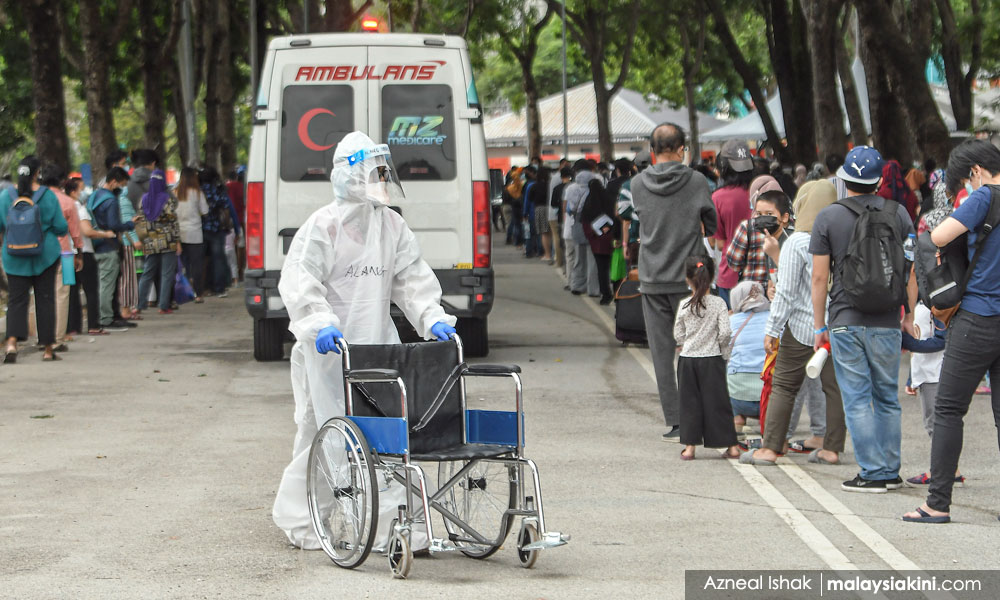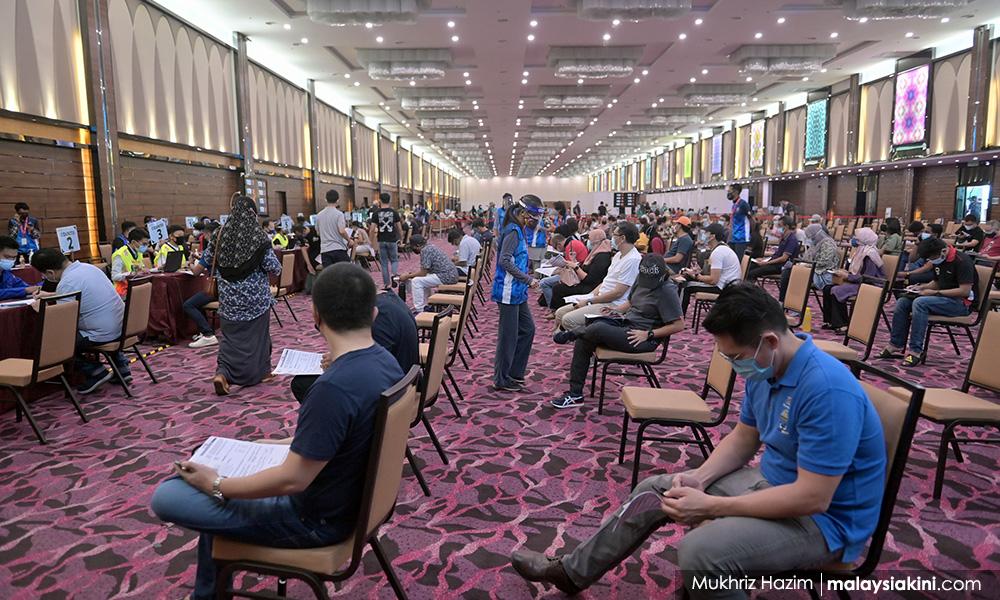COMMENT | Urgent need to re-strategise approaches to combat Covid-19
COMMENT | While some results have been seen during the last 15 months of the Covid-19 pandemic, Malaysia needs to re-strategise policy measures in the fight against the Covid-19, and the many serious cross-cutting impact within the society and the economy.
By now, it is clear that while the frontliners continue to be hardpressed in managing the rising numbers of Covid-19 patients in public and private hospitals - with shortages of equipment, and vital facilities, as well as supporting human resources - the decision-makers, however, have not been able to present and implement coherent, sensible and effective policy measures.
As a result, there continue to be uncertainties, confusion and concern within society at large and the various stakeholders in the economy, and the nation as a whole.
The various forms of lockdowns, although with the best of intentions, have not been well implemented. Such incoherent lockdowns have had negative and serious effects on the economy - the lifeblood of any nation.
It's very clear that these strict measures were taken because they were necessary to curb the rate of infections. However, there were no engagements with the relevant stakeholders - from small-medium enterprises (SMEs) to the larger industrial and business entities.
The listing out of "essential" and "non-essential " businesses and sectors did not have any valid reasons and sensible criteria.
Worse still, the seemingly random listing has shown up the failure to look at the role of particular market entities in the different production value chains in any sector.
As a result, the lockdowns have "paralysed" the industries that were vital to the economy and to livelihoods.
The export-oriented industries have been forced to close, rendering them unable to meet contractual obligations, and Malaysian as well as Malaysian-based companies will stand to lose overseas markets.

The SMEs, many of which constitute a strong pillar of the economy, have been badly affected. The Small and Medium Enterprises Association of Malaysia reported that more than 100,000 small- and medium-sized companies have ceased operations since last year, and another 50,000 more are expected to fold up in the coming few months.
This alone has resulted in the retrenchments of untold number of workers, loss of incomes for families and individuals, and the ensuing stresses of trying to sustain daily living.
Never has the country witnessed long queues of people waiting for food and assistance from well-meaning groups and associations, especially those who responded to the needy who have desperately hoisted the white flags.
When any business entity in any sector is forced to shut down, it will result in long-term and cascading, negative socio-economic impact across society.
In fact, Entrepreneur Development and Cooperative Minister Wan Junaidi Tuanku Jaafar himself had revealed that a recent survey conducted by the ministry estimated that 580,000 businesses, half of which are in the SME category, that account for 40 percent of the country's GDP, are at risk of failing if they are not allowed to open up their operations by October this year.
The fallout from these massive business closures, mainly in the "first to close, last to open" category, would also mean that more than seven million workers are expected to be unemployed.
And assuming that each worker has an average of two dependents, another 14 million, or virtually almost half of Malaysia's population, will be hit hard.
This absolutely grim scenario, already looming on the horizon, flies in the face of the reality of the current obsession with prolonged lockdowns.
They will only create a domino effect - hitting society hard at the very core and leading to an unimaginable serious social and economic devastation.
It will take a very long time for the country to recover.
Therefore, it is time to come up with coherent and comprehensive measures to deal with this impending economic disaster other than merely imposing lockdowns.
It is a matter of urgency.
Those responsible for the National Vaccination Programme, particularly the coordinating minister Khairy Jamaluddin, should have by now realised the mistake of not giving, from day one, priority to workers in all of the nation's industrial sectors in the vaccination process.
The workforce, which is keeping the economy going and sustaining livelihoods, should have been fully vaccinated by now, instead of still waiting in endless queues.
If they had been prioritised, then the tens of thousands of companies would have been allowed to continue their operations even under the various lockdowns. Their employees would have received their vaccination for the first dose to be followed quickly with the second dose.
And there would not be those industry clusters which make up 48 percent of the total Covid-19 clusters.
The failure in identifying the key growth trigger sectors in the vaccination priority order has continued to prove to be very costly to the people and country.
In fact, the damage is, as yet, not quantified, and it will have long-term repercussions.

Vaccination is accepted globally as pivotal in managing in the Covid-19 pandemic, especially as new variants have begun to emerge.
It is time to ensure that the existing approaches toward vaccination are fine-tuned.
Vaccination should be in situ, where the target groups are at the district and sub-district levels, using all the public facilities available within the grassroots communities. These include small government health clinics, community centres, mobile vaccination clinics, drive-in locations, and effective outreach approaches at the grassroots level itself.
Granted that due to the worldwide demand for vaccines, there are supply constraints. And in addition, there is the critical need to put in place the proper logistics in order to preserve vaccine efficacy.
But that alone should make it more imperative for Malaysia to widen the sources of vaccines to secure and beef up Malaysia's vaccine stockpile. And procuring vaccines that are approved by the World Health Organisation. Limiting our procurements to just two or three vaccine sources has contributed, somewhat, to the current slow pace of vaccination.
It is also time to review the now-limited vaccination hours. A re-thinking is needed to enable some night-time vaccination in order to accelerate the coverage of people to be vaccinated.
In addition, special effort must be made to vaccinate those living in areas with no or little Internet coverage, rendering them unable to use the MySejahtera facility.
Most likely, such groups may be unable to get vaccinated if no effort is made to reach out to them where they are.
Certainly, the re-strategising would require a clear understanding of the key drivers of the nation and the implementation of realistic approaches on a parallel track to both managing the Covid-19 pandemic, and at the same time, managing the economy (with the spinoffs to the rest of the society and the country).
It is important to keep politics out of the equation so that any policy measure is not made ineffective and useless due to political considerations.
Time is of the essence.
RAFIDAH AZIZ is a former minister.
The views expressed here are those of the author/contributor and do not necessarily represent the views of Malaysiakini.
RM12.50 / month
- Unlimited access to award-winning journalism
- Comment and share your opinions on all our articles
- Gift interesting stories to your friends
- Tax deductable
